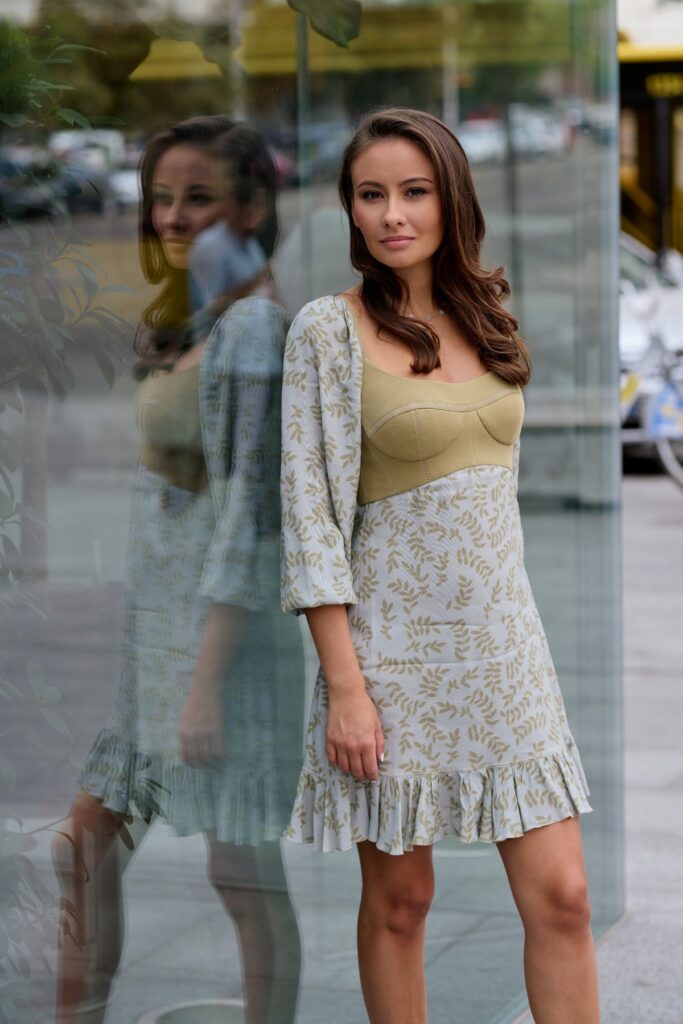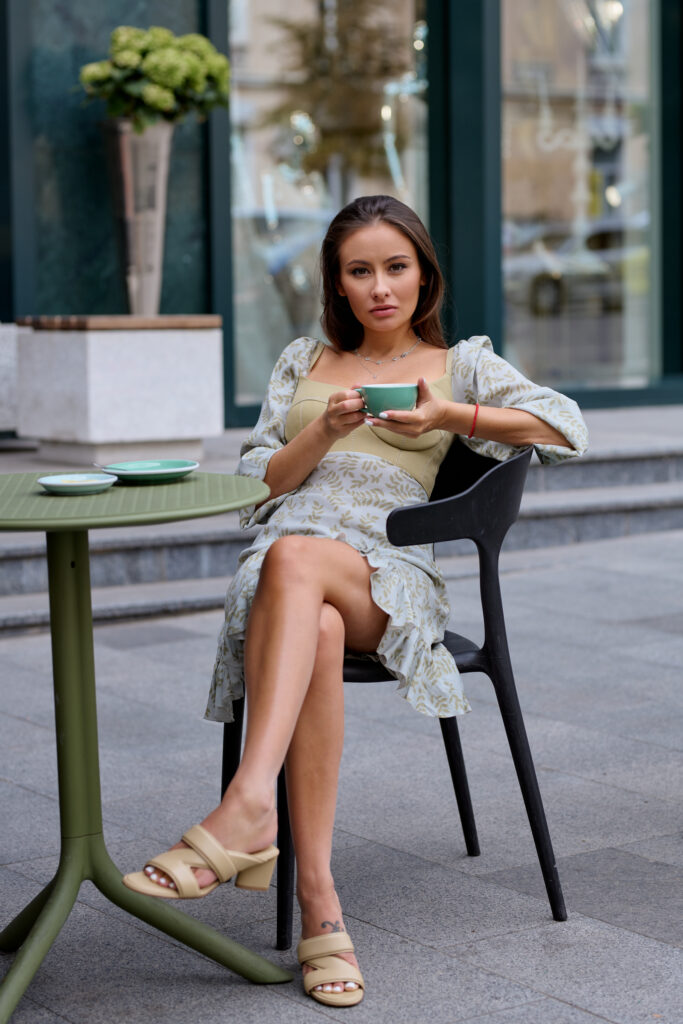Kateryna Biloruska, a woman with passion who gives a “voice” to teenage girls, speaks about the work and vision of her foundation, which also bears her name. Through the programmes she creates, she encourages young girls to develop their leadership skills and imagine themselves as leaders in the future.
“The leader of tomorrow is born when we empower and inspire the next generations to dream and to claim their place.” This was the phrase that, among others, stayed with me after our meeting.
The Chairwoman of the ‘Kateryna Biloruska Foundation’ is a woman of vision and passion. Through the programmes she creates, she encourages young girls to develop their leadership skills and to imagine a bright future. Her dedication inspires the next generation, and guides them with courage and confidence. Kateryna Biloruska describes the programmes she launches for young future leaders and explains how the family environment can serve as a foundation for their development.
What is the core mission of the Kateryna Biloruska Foundation?
The foundation’s main mission is the development of future generations. One direction focuses on sports, which we have been working on for the past six years, trying to get the children involved in it too. This year, we also started working on the FEM (Future Empowered Minds) programme, which is designed specifically for teenage girls, aiming to empower them and equip them with the skills they need to become the next generation of leaders.
How difficult is it to find these girls and support them in becoming future leaders?
It is quite difficult, but also very interesting, because you can learn a lot from interacting with them. Today’s children are different, and we need to learn to listen to them so we can understand what they truly need. What we do through the FEM programme is offer a leadership programme. The first one was held in March in Limassol, and it was fantastic. We brought together 18 girls from all over Cyprus and Ukraine, so it was actually an international programme. This philosophy is central to all our projects. We want to create an inclusive and intercultural environment, by bringing together people from different cultures.
Tell us more about the activities under the FEM programme.
As part of the programme, we organise camps where girls participate for 10 days or one week. They take part in interactive workshops, mentoring sessions, and practical activities. The online programme is different; through that, we aim to offer them a more comprehensive and in-depth knowledge base, helping them build essential skills that will serve them in their future.
We’re planning the first online digital course this September, which will last three months. During the course, participants will work with mentors, beginning with a focus on themselves. We’ll help them understand who they truly are, and they will speak with a psychologist to identify their strengths and weaknesses.
We also plan to select girls who can become future mentors in the camp or our programme. We want to pass on our knowledge so that they, in turn, can share it with other girls.
How do you select the girls who participate in your programmes?
At this stage, we’re not strict in the selection process. The girls need to speak English, since the programme is based in that language, and of course, they need to be motivated. They must also know that this requires an investment of time and energy. This isn’t something that happens in a day; it’s something you have to work on continuously.
Partnerships are a key part of your foundation. What kinds of collaborations are you looking for?
I believe that partnerships are the key to success, both in business and in philanthropic work. You can’t do anything alone. You need to have people around you who believe in your mission. As such, we look for partners who share our vision.
Essentially, we are looking for two types of collaborations. The first is with a team of specialists who can share their knowledge with the girls. The second is with professionals from the business world, who can open their doors to the girls and show them how their industries work, helping them explore potential career paths. I believe it’s a real challenge for teenagers to choose a professional direction and say, for example, “I want to be a lawyer, or a doctor.”
Beyond your professional role, we’d love to know more about you as a mother, and how your family influences your vision.
I’ve been married for several years, and have two daughters. One is two years old, and the other is three. I have to say, it’s a challenge- they’re close in age and argue with each other (laughs). Still, they help me with the programmes I launch for teenage girls, because when I look at them, I imagine how beautiful it would be for them to belong to this ‘sisterhood’, to empower and support one another.
How parents guide their children is crucial to helping them become leaders in the future. That’s what I try to do with mine. That’s why the foundation also works with parents and mentors, because their contribution is vital to a child’s development.
How can your own children become leaders in the future?
I believe that with self-confidence, they can achieve a great deal. That’s every parent’s primary responsibility: to empower their children and support them at every step. That doesn’t mean a parent should always tell their child what they want to hear; they should guide them with honesty.
To close our conversation, what message would you like to send to our teenage readers?
The main message I want to share with the girls is this: be present, have confidence, and keep trying, because it’s only through effort that you’ll find out whether you can do something or not.


Also read: Doomscrolling linked to decline in teen mental health
For more videos and updates, check out our YouTube channel.


